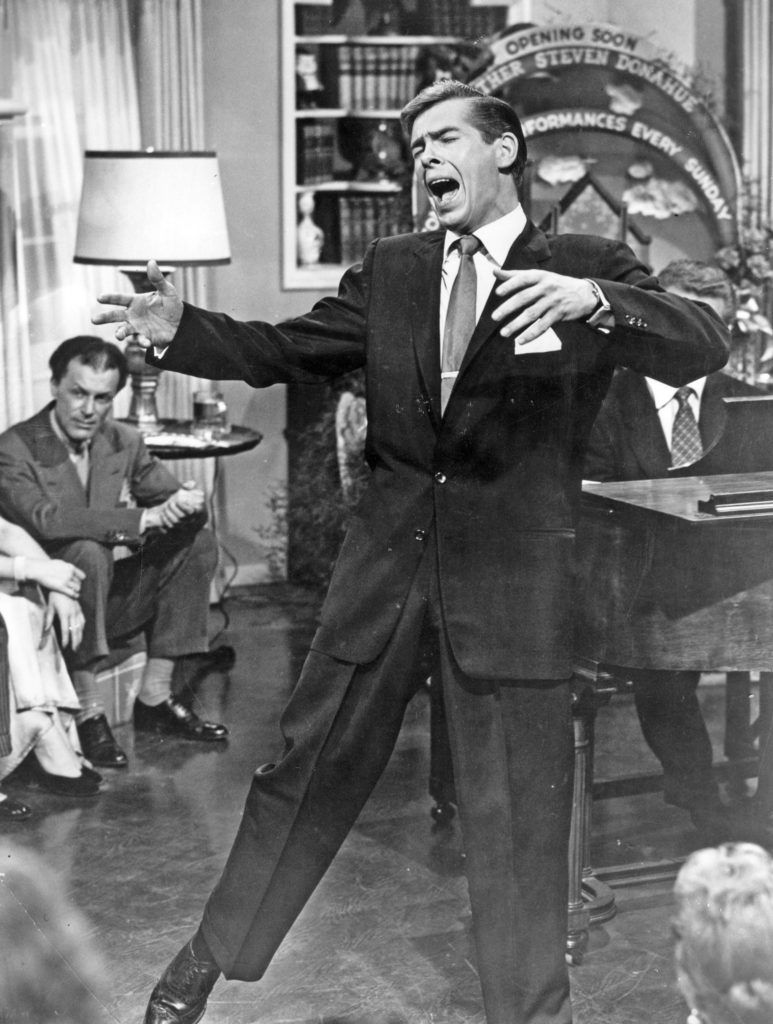Poor Old Johnnie Ray
- Maxwell Truth

- Feb 22, 2022
- 2 min read

Some considered this singer, songwriter and pianist as the precursor to what eventually became known as rock and roll. In fact Tony Bennett called Johnnie Ray the "father of rock and roll" and historians have noted him as a pioneering figure in the development of the genre because of his jazz and blues infused music along with a very animated stage presence which included tearing at his hair, falling to his knees and crying, which earned him nicknames like "Mr. Emotion", "The Nabob of Sob", "The Cry Guy", and "Prince of Wails". He influenced many acts including Elvis, Dylan and the Beatles.

Born In Dallas, Oregon on January 10, 1927, John Alvin Ray was heavily influenced by gospel music and singers like Billie Holliday, and Lavern Baker from a very early age.
He began playing the piano at three years old and singing at the ripe old age of 12 despite being partially deaf. Eventually he gained a local following singing at small, predominantly African-American nightclubs in Detroit where he was discovered in 1949 and subsequently signed to a subsidiary of Columbia Records. He became a sensation in 1951 and was the first pop singer to have a two-million-selling two-sided hit with "Cry" / "The Little White Cloud That Cried". The record stayed at number one for eleven weeks, and eventually sold three million copies. Ray had more than twenty hits from 1951 to 1958 including "Just Walkin in the Rain", "Walkin' My Baby Home", "Please Mr. Sun" and "Candy Lips"..

He made his first and only major motion picture, "There's No Business Like Show Business" with Ethel Merman and Marilyn Monroe in 1954. Although he never appeared in another A-List movie he did make numerous television appearances including the Ed Sullivan, Jack Benny, Andy Williams and Tonight shows along with this very rare appearance from 1966 on a series produced by Chicago's WGN entitled 'An Evening with Johnnie Ray'.
Because of his alcohol and drug addictions as well as his unorthodox sexual proclivities, his career in the Unites States began to wane a few years after his divorce from Marilyn Morrison in 1954. Though his American popularity was in decline by 1957, he remained popular in the United Kingdom. He even broke the attendance record at the infamous London Palladium formerly set by fellow Columbia recording artist Frankie Laine. In later years, he retained a very loyal fan base overseas, particularly in the UK and Australia.
In addition to his recorded works Johnny Rays legacy has been memorialized by numerous other artists, He is mentioned in songs by Van Morrison, Billy Idol, Billy Joel, Eartha Kitt and of course Dexys Midnight Runners "Come on Eileen" which utilized archival footage of Rays 1954 arrival in London in their MTV video hit.
For his contribution to the recording industry, in 1960 Johnnie Ray was honored with a star on the Hollywood Walk Of Fame.

He died in Los Angeles on February 24, 1990 at the age of 63

Poor old Johnnie Ray.
Sounded sad upon the radio,
But he moved a million hearts in mono












Comments